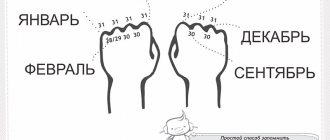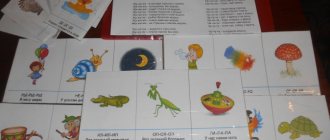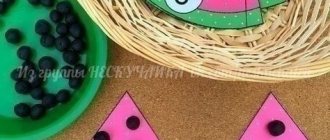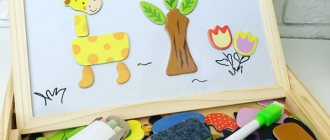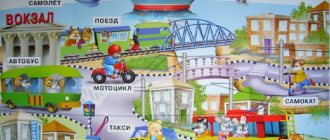Evaluate the action
To play the game you need to prepare pictures depicting good and bad deeds. The teacher says that an evil sorceress bewitched the paths in the forest. The children went to pick mushrooms and berries, but got lost. To spell the forest paths, you need to correctly separate the pictures.
Players carefully examine the images, tell what they see, and evaluate the drawn scenes. Then the pictures are divided into 2 groups: positive scenes are placed on the right side, negative ones are placed on the left side.
Good words
During the word game “Kind Words,” the leader pronounces adjectives with a negative meaning, and the children must replace them with positive words. For example:
- angry - joyful;
- sad - cheerful;
- noisy - quiet;
- cowardly - brave;
- rough - tender;
- talkative - silent;
- malicious - friendly;
- greedy - generous;
- deceitful - truthful;
- aggressive – good-natured;
- lazy - hardworking.
Looking for kind words
The game is intended for senior and preparatory groups. For this you need to prepare cards divided into several parts. One of the cells depicts an adult of a certain profession or social status: parent, stranger, neighbor, doctor, salesman, teacher, conductor. Also, the game requires separate cards with words corresponding to the size of the cells. They should contain words and phrases used when a child addresses an adult: “hello”, “excuse me”, “be kind”, “please tell me” and others.
The presenter reads out the phrase, and the children think about which adult it can be applied to. When they have made their choice, place the card on the correct cell.
Heart tree
To play, you need to prepare an image of a magic tree, and also cut out leaves in the shape of hearts. The teacher explains to the students that a hurricane tore off the leaves from the magic tree of goodness. We need to return the leaves to the branches. But only those who know kind and polite words can do this.
Each player takes a heart. The teacher asks a question. Having answered correctly, the child can attach the heart to a tree branch. If a player finds it difficult to answer, or if he answers incorrectly, then the move is passed to the next participant.
Here are sample questions:
- what to say when meeting;
- how to calm a crying friend;
- what word to thank for help;
- what to say if you accidentally hit someone with your elbow;
- what to say when saying goodbye;
- how to invite an old lady to sit in an empty seat on the bus;
- what to say when a friend shares candy with you.
Complete the sentence
The presenter says the beginning of the sentence, and the players take turns completing it:
- Mitya is well-mannered and polite; when we meet, he always says... hello;
- when a friend has a cold or sneezes, you need to tell him... be healthy;
- Mom scolded Vanya for pampering, and he answered her... sorry;
- when people meet in the evening, they say to each other... good evening;
- parents gave Masha a birthday present, and she replied... thank you;
- when saying goodbye, people say to each other... goodbye;
- Mom, putting Olya to bed, tells her... good night;
- Artem politely asked a friend for a book, the friend agreed and said... please.
How to say hello correctly
This game for preschoolers develops concentration and can be used as a physical education activity.
The teacher explains to the children that you can say hello in 3 ways: with your head, hands and mouth. The players consider each option. Each player offers his own version of greeting. The head is a nod, a blink, a wink. Hands are shaking, clapping hands, connecting fists. Using your mouth means pronouncing the words “hello”, “good afternoon”, “hello”.
Next, the children begin to move around the playground, and the teacher gives certain signals. When he claps his hands once, each child must shake hands with the player who happens to be nearby. When the teacher claps 2 times, the children shake their heads. When clapping 3 times, players say greetings.
Good words
The goal of the game “Kind Words” is to expand the understanding of the positive qualities of people. Children learn to see the good in loved ones. The number of participants is unlimited; you need a ball to play.
The players stand in a circle. The teacher invites them to remember what kind epithets are used when addressing close people: parents, relatives, friends. Children call: “good”, “caring”, “beautiful”, “cute”, “friendly”, “cheerful”, “gentle” and other words. Then the teacher asks the participants to look at their neighbor in the playing circle and think about what positive qualities he has.
Each player takes the ball and names the good quality of his neighbor. Then he passes the baton to the participant standing next to him. Younger players name only the epithets themselves. Children in the middle group must also explain their answer. For example, “Sasha is generous because he allows him to play with his toys.”

